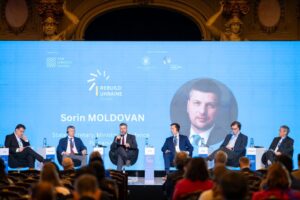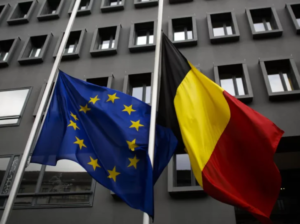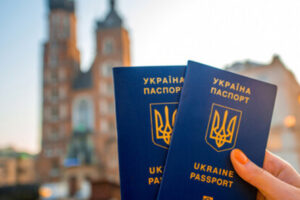
According to Serbian Economist, two cases of leprosy (Hansen’s disease) have been confirmed in Romania — the first in the country in over 40 years, authorities said. The disease was diagnosed in two massage therapists at a spa in the northwestern city of Cluj. Both patients are Indonesian citizens aged 21 and 25; two other people are being tested.
Health Minister Alexandru Rogobete said that visitors to the spa center should not panic, as prolonged contact is usually required for the infection to be transmitted. According to him, one of the patients recently returned from Asia, where she spent about a month with her mother, who was in the hospital with the same disease at the time. The authorities have suspended the spa center’s operations for the duration of the epidemiological investigation.
According to Romanian authorities, the last confirmed case of leprosy in the country was recorded 44 years ago (i.e., in the early 1980s).
An important clarification: we are talking about “the first cases in Romania in 40+ years,” not “the first in Europe” — the media sometimes likes to simplify headlines.
What does this mean for tourists and the healthcare system?
According to the authorities, the risk to spa customers is low: leprosy is usually transmitted through prolonged close contact with an untreated patient; casual contact is not considered a typical route of transmission.
The long incubation period makes it likely that the infection did not occur in Romania: symptoms can appear years later, sometimes up to 20 years after contact.
Closing the facility and testing contacts is a standard measure for rare imported infections: even with low contagiousness, it is important to quickly identify close contacts (including colleagues) and prevent further transmission.
The informational risk (fears/stigma) may be higher than the medical risk: leprosy has historically been highly stigmatized, although today it is curable and, with timely treatment, does not usually lead to disability.
What is leprosy (Hansen’s disease):
Causative agent: Mycobacterium leprae bacteria. The disease most often affects the skin and peripheral nerves.
Transmission: mainly through droplets from the nose/mouth during close and frequent contact with an untreated person. It is not spread through normal everyday contact (handshakes, hugs, sharing food, sitting next to someone).
Incubation period: on average about 5 years, but symptoms may appear much later — up to 20 years.
Treatment: leprosy is curable with multidrug therapy (MDT); after starting treatment, the patient usually ceases to be a source of infection.

Participants in the panel discussion “Security Perspectives for 2026: Possible Developments” at the Ukraine Recovery Forum in Bucharest concluded that 2026 is shaping up to be a potential strategic turning point for Euro-Atlantic security against the backdrop of the ongoing war in Ukraine, the vulnerability of transatlantic ties, and growing pressure on the EU to strengthen its defense capabilities and strategic autonomy.
The discussion was moderated by Antena 3 CNN journalist Radu Tudor. The panel included Sorin Moldovan, State Secretary of the Romanian Ministry of National Defense; Vadym Halaychuk, First Deputy Chairman of the Verkhovna Rada Committee on EU Integration; Paul Coyer, Professor at the Institute of World Politics (USA), Nico Lange, Senior Research Fellow at the Munich Security Conference, and Shigeo Mutsushika, Executive Director of the Kazankai Foundation and Honorary Professor at Shizuoka University (Japan).
According to the speakers, Europe’s security environment in 2026 will be determined by a combination of several factors: the Russian Federation’s ongoing full-scale invasion of Ukraine, the fragmentation of transatlantic unity, and growing competition between major powers, including the use of hybrid instruments. Against this backdrop, Europe, in their opinion, should play a “more mature strategic role” – not only in the defense sphere, but also in industrial and energy policy.
“European states can no longer take security for granted – they need their own capabilities that will complement, not replace, the transatlantic partnership,” Lange said.
The participants paid particular attention to the stability of the Black Sea region and the resilience of NATO’s eastern flank, which were identified as key pillars of the European security architecture. It was emphasized that maintaining and strengthening support for Ukraine—military, economic, and political—will remain a decisive factor in deterring Russia and preventing further destabilization of neighboring regions. In this context, particular attention was paid to the risks associated with hybrid threats – cyberattacks, sabotage against critical infrastructure, and information operations.
Following the discussion, the panel concluded that structural changes in the security environment require deeper coordination between European states, accelerated investment in critical capabilities, and the adaptation of defense doctrines to new operational realities. Continued support for Ukraine, active use of Western economic and legal instruments—including the possible use of frozen Russian assets—and strengthening of the transatlantic partnership were identified as necessary prerequisites for maintaining regional stability and establishing a sustainable European security order.

Ukraine maintains stable rapeseed export rates and, as of December 8, has shipped 52,000 tons, while in November the figure was almost 158,000 tons. In December, exports will remain within the range of 105,000-150,000 tons, according to the analytical cooperative “Pusk,” created within the framework of the All-Ukrainian Agrarian Council (VAR).
“Rapeseed exports remain stable. Paid duties have begun to return, and liquidity is gradually shifting toward exporters,” analysts said.
According to their data, rapeseed has been trading in a narrow range of EUR 477–480 per ton on the European market for about two months. There are price fluctuations of 2–3%, but there is no real dynamics. However, the crop may go up, analysts note, adding that soybeans are the key driver now: if they grow, rapeseed may also rise in price to EUR477–480 per ton.
According to their observations, the situation is similar on the domestic market: the conditional price remains at $550–560 per ton, and the indicative price of processing enterprises is 24–24.5 thousand UAH/ton.
“The market is generally stable. There are isolated cases of higher prices, but they are individual. Some factories are speeding up purchases due to a shortage of other crops, in particular sunflower, so a slight increase is possible,” the experts emphasized.
They reminded that forward trading in rapeseed from the 2026 harvest will soon intensify.
“The first indicative prices for new harvest rapeseed are announced at $430–435 per ton CPT port for small batch deliveries in July–August. The best period for forward fixing is traditionally January-March. There are no visible risks for the new harvest at the moment, but it is still too early to conclude contracts for large volumes,” Pusk recommended.

Belgium is demanding “independent” and “autonomous” guarantees from EU countries in exchange for its support for a loan to Ukraine using frozen Russian assets, Euractiv reports.
The documents, which are currently being discussed by EU ambassadors, come amid frantic efforts by the bloc to persuade Belgium to back the so-called reparations loan ahead of a crucial European Council summit in Brussels next week.
Euroclear, a securities depository headquartered in Brussels, holds the vast majority of the EUR210 billion in frozen assets that will be used to support Kyiv’s military efforts, making Belgium a key player in the EU negotiations.
In a series of amendments to the Commission’s legal proposal, which was first circulated to EU ambassadors last week, Belgium notes that the guarantees must be “independent and autonomous so that they remain in force even if the loan is declared invalid.”
Other key Belgian demands include: other EU states covering potential legal costs that Moscow may claim from any member state; EU capitals refraining from concluding new investment agreements with Russia and cancelling all existing agreements; and a number of other measures to protect Belgium from potential reprisals by Moscow.
Luxembourg and Belgium signed a bilateral investment agreement with the then USSR in 1989, which has not been revoked to date.
In addition, it requires that Euroclear itself “not be liable” for providing the reparations loan, and that its “directors be liable only in cases of gross negligence.”
The Russian Central Bank announced that it would file a lawsuit against Euroclear in a Moscow court on Friday.
Belgium has repeatedly criticized the Commission for continuing with the loan program and has called on other EU countries to support the issuance of joint debt obligations instead. However, the latter option is currently being blocked by Hungary, which is also strongly opposed to the loan program.

In September 2025, there was an annual peak in the granting of temporary status to Ukrainian citizens in European Union countries, according to Eurostat.
“In October 2025, EU countries issued 74,175 new decisions on granting temporary protection. This is the second highest monthly figure in 2025 after the peak recorded in September (79,525). These high figures are the result of a decree by the Ukrainian government, adopted at the end of August 2025, which grants men aged 18 to 22 inclusive the right to leave Ukraine without hindrance,” the report says.
As of October 31, 2025, Ukrainian citizens accounted for more than 98.4% of those who received temporary protection in the EU. Adult women accounted for 43.8% of those who received temporary protection. Minors accounted for almost a third (30.8%), and adult men for just over a quarter (25.5%) of the total number
. As of October 31, 2025, a total of 4.3 million non-EU citizens who fled Ukraine had temporary protection status in the EU. Compared to the end of September 2025, the total number of persons from Ukraine under temporary protection decreased by 6,170 (-0.1%).
The EU countries that received the largest number of persons from Ukraine under temporary protection were Germany (1,229,960 persons; 28.6% of the total number in the EU), Poland (965,005; 22.5%), and the Czech Republic (393,005; 9.1%).
CZECH REPUBLIC, GERMANY, POLAND, TEMPORARY PROTECTION, UKRAINIANS

The Ukrainian agricultural sector is faced with the need to implement EU standards, which could cost the industry up to €2.5 billion annually, but at the same time opens up strategic opportunities for integration and strengthening Ukraine’s role in global food security, said Andriy Dykun, chairman of the All-Ukrainian Agrarian Council (AUC).
“Calculations show that the introduction of European eco-standards will cost the Ukrainian agricultural sector approximately €2.5 billion per year, which amounts to €70-150 in additional costs per hectare. We must incorporate these standards into our legislation. And at the same time, no one is even talking about giving Ukraine subsidies,“ the association’s press service quoted him as saying at the conference ”Agribusiness in Ukraine.”
He added that environmental standards are currently under pressure in Europe itself.
“It is important to understand that these standards are not yet a certainty in the EU itself. European farmers are also under a lot of pressure, and their green course is constantly changing,” Dykun noted.
After unification, Ukraine and Europe together will be the largest food producer in the world.
“We are the only country that will join the EU with agriculture better than in any other EU country — we are coming in with a high level. But we must unite with Europe not with an “outstretched hand,” but as an equal partner, which together with the EU will become the world’s largest food producer. This needs to be worked out professionally,” the VAS chairman concluded.